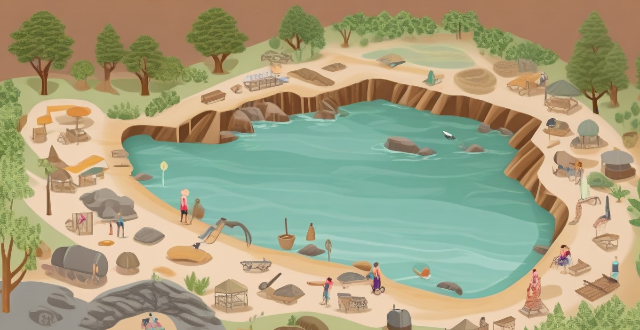Climate change has a significant impact on the spread of vector-borne diseases like dengue and malaria. The increased temperatures, changes in precipitation patterns, urbanization, deforestation, global travel, and trade all contribute to the spread of these diseases. Warmer temperatures can lead to an increase in the number of breeding sites for mosquitoes, while heavy rainfall can create temporary pools of standing water that serve as ideal breeding grounds for mosquitoes. Urbanization leads to denser human populations living in close proximity to each other, making it easier for mosquitoes to find hosts and spread diseases. Deforestation disrupts ecosystems and removes natural barriers that limit the spread of mosquitoes. Global travel allows people to carry diseases across borders, introducing new strains of viruses into areas where they were previously absent. Trade in goods and products can introduce new species of mosquitoes into areas where they were not previously found. By understanding how climate change affects these diseases, we can take steps to mitigate its effects and protect public health.

Impact of Climate Change on the Spread of Vector-Borne Diseases
Climate change has a significant impact on the spread of vector-borne diseases such as dengue and malaria. The following are some ways in which climate change affects the spread of these diseases:
Increased Temperatures
* Warmer temperatures can lead to an increase in the number of breeding sites for mosquitoes, which are the primary carriers of dengue and malaria. This is because warmer temperatures can create ideal conditions for mosquito larvae to develop and mature into adult mosquitoes.
* Longer summers also provide more time for mosquitoes to breed and transmit diseases to humans.
Changes in Precipitation Patterns
* Heavy rainfall can create temporary pools of standing water, providing ideal breeding grounds for mosquitoes. These pools can remain for several days or even weeks, allowing mosquitoes to lay their eggs and complete their life cycle.
* Droughts can also contribute to the spread of vector-borne diseases by causing people to store water in containers around their homes, which can serve as breeding sites for mosquitoes.
Urbanization and Deforestation
* Urbanization leads to an increase in human populations living in close proximity to each other, making it easier for mosquitoes to find hosts and spread diseases. Additionally, urbanization often results in the destruction of natural habitats that would otherwise support predators of mosquitoes.
* Deforestation disrupts ecosystems and can lead to an increase in mosquito populations by removing natural barriers that would otherwise limit their spread.
Global Travel and Trade
* Global travel allows people to carry diseases across borders, including those transmitted by mosquitoes. This can introduce new strains of viruses into areas where they were previously absent, leading to outbreaks of disease.
* Trade in goods and products can also introduce new species of mosquitoes into areas where they were not previously found, potentially leading to the establishment of new breeding populations.
In conclusion, climate change has a significant impact on the spread of vector-borne diseases like dengue and malaria. By understanding how climate change affects these diseases, we can take steps to mitigate its effects and protect public health.